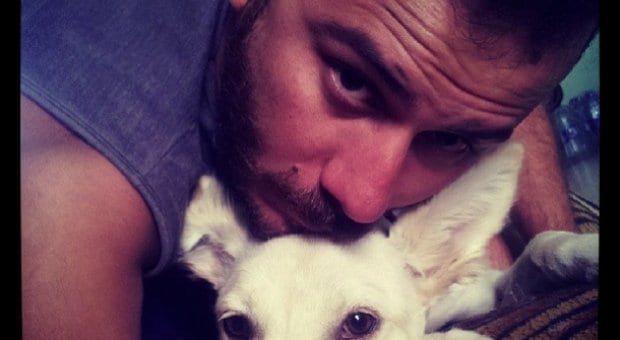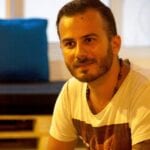Shawarma is not a simple meal to make. The Middle Eastern/Turkish food is by far more complicated than just a small sandwich with some chicken and some sauce.
For one thing, there are so many variations: the traditional Syrian shawarma sandwich, the kebab shawarma and the Arabian shawarma, where the sandwich is cut it into little pieces and presented in a dish, surrounded by pickles, vegetables, mayonnaise and a number of Arabian dips. And of course, every single country in the Arab world has its own delicate spice mix to create the perfect shawarma.
My boyfriend recently asked me why I prefer the Arabian shawarma. I smiled but didn’t reply. In my head, I connected the dots to a time in my life when I was 11, maybe 12. My father would give me 200 Syrian pounds (about $4 US at the time) and send me away on a quest to get a big delicious dish of Arabian shawarma. My little sisters, my parents and I would gather around the table with the beautifully designed shawarma meal and the big cold bottle of Mandarin (the Syrian equivalent of Pepsi), and we would eat; it is one of the most delightful memories of my childhood.
Yes, I’m fully aware of how cliché it is to connect my childhood in Syria with a traditional Syrian meal. But other than these shawarma nights, my relationship with my father has been on the darker side. Why did I come out to him at the age of 17? What possessed me to come out of the closet, knowing that I would face a storm of anger and maybe worse?
I would like to say bravery or self-worth or paint you a picture of a 17-year-old me marching the streets of Damascus, carrying a rainbow flag and demanding rights. The truth is that I came out because I wanted to see a reaction from him: I honestly wanted to matter to him in some way, in any way, really. I felt like a forgotten chair sitting on the side of his life, while he drifted apart from my mother and thus drifted away from our family.
I came out in the middle of a fight about laundry and school work. In the middle of a sentence, I just said it out loud. It brought a halt to our fight, but the silence didn’t last long. The expected anger came right after, the questions for details, which I offered generously, then the volcano of a reaction: the slap came suddenly, out of nowhere, followed by multiple blows, then a kick, and I was on the floor, begging him to stop. The screaming didn’t stop, even after I heard the key turn three times in the door of my bedroom, now my prison cell.
Ten years later — eight of them not on speaking terms — my father sits in his small house in Jordan, taking care of his family of young refugees, hoping for a fresh start, having left his house, his job and his life back in Syria under the pressure of the civil war there. On the phone, he talks to me about his hardships, his challenges and his needs; sometimes he asks for money, sometimes he demands it; his voice breaks in either case.
Has he changed? I sometimes wonder. It required a war, filled with explosions, sectarian tensions and blood on the streets for my father to pick up the phone and try to fix his relationship with his oldest son.
Still, he cannot bring himself to invite me to my sister’s wedding; I don’t belong there. In his head, I bring him shame that he is not willing to share with his new in-laws.
Sometimes, in my head, I feel like I’m still locked in that bedroom. Still hoping for a sense of belonging, locked forever in my own teenaged years, where I am too young to know that I can get through it.
But sometimes, I find moments of solace.
In a recent conversation with my roommate David, I told him that I always wanted an older brother. He smiled, then asked if I would give him the honour of calling him my older brother.
Years ago, I was sitting on a balcony in Egypt with my best friend in the world, Nadia, recounting the mundane details of our days. I slipped my head on her shoulder and asked her if she could be my sister. She laughed and said she is my “sista from another mother.”
A couple of months ago, Ron, a Canadian man playing a major role in my attempt to immigrate to Canada, stood by my side when I needed the emotional support and the loving embrace of a family. He, jokingly, asked if he could adopt me. That’s when I knew he will always be my father figure, my idol.
This, too, may seem cliché, but I believe family is not the family we’re born with; it’s the family we choose. And I have a great family.
Now if only I could invite them all to a big feast of Arabian shawarma.


 Why you can trust Xtra
Why you can trust Xtra


